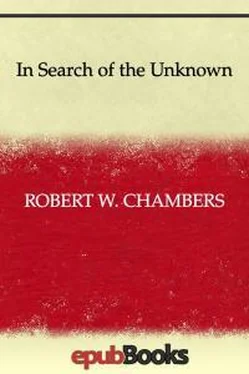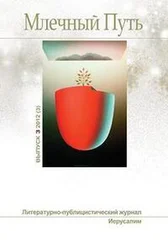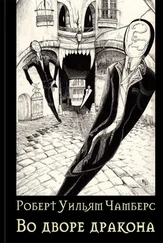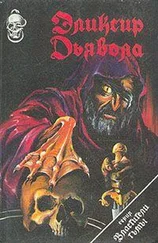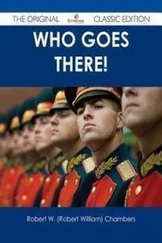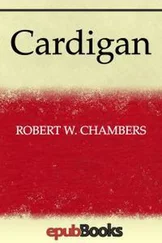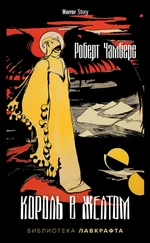Роберт Чамберс - In Search of the Unknown
Здесь есть возможность читать онлайн «Роберт Чамберс - In Search of the Unknown» весь текст электронной книги совершенно бесплатно (целиком полную версию без сокращений). В некоторых случаях можно слушать аудио, скачать через торрент в формате fb2 и присутствует краткое содержание. Год выпуска: 2014, Издательство: epubBooks Classics, Жанр: Фантастика и фэнтези, на английском языке. Описание произведения, (предисловие) а так же отзывы посетителей доступны на портале библиотеки ЛибКат.
- Название:In Search of the Unknown
- Автор:
- Издательство:epubBooks Classics
- Жанр:
- Год:2014
- ISBN:нет данных
- Рейтинг книги:3 / 5. Голосов: 1
-
Избранное:Добавить в избранное
- Отзывы:
-
Ваша оценка:
- 60
- 1
- 2
- 3
- 4
- 5
In Search of the Unknown: краткое содержание, описание и аннотация
Предлагаем к чтению аннотацию, описание, краткое содержание или предисловие (зависит от того, что написал сам автор книги «In Search of the Unknown»). Если вы не нашли необходимую информацию о книге — напишите в комментариях, мы постараемся отыскать её.
In Search of the Unknown — читать онлайн бесплатно полную книгу (весь текст) целиком
Ниже представлен текст книги, разбитый по страницам. Система сохранения места последней прочитанной страницы, позволяет с удобством читать онлайн бесплатно книгу «In Search of the Unknown», без необходимости каждый раз заново искать на чём Вы остановились. Поставьте закладку, и сможете в любой момент перейти на страницу, на которой закончили чтение.
Интервал:
Закладка:
There was not a fire–arm aboard that we could get at. Halyard's hand crept backward where a steel–shod boat–hook lay, and I also made a clutch at it. The next moment I had it in my hand, and staggered forward, but the boat was already tumbling shoreward among the breakers, and the next I knew the harbor–master ran at me like a colossal rat, just as the boat rolled over and over through the surf, spilling freight and passengers among the sea–weed–covered rocks.
When I came to myself I was thrashing about knee–deep in a rocky pool, blinded by the water and half suffocated, while under my feet, like a stranded porpoise, the harbor–master made the water boil in his efforts to upset me. But his limbs seemed soft and boneless; he had no nails, no teeth, and he bounced and thumped and flapped and splashed like a fish, while I rained blows on him with the boat–hook that sounded like blows on a football. And all the while his gills were blowing out and frothing, and purring, and his lidless eyes looked into mine, until, nauseated and trembling, I dragged myself back to the beach, where already the pretty nurse alternately wrung her hands and her petticoats in ornamental despair.
Beyond the cove, Halyard was bobbing up and down, afloat in his invalid's chair, trying to steer shoreward. He was the maddest man I ever saw.
"Have you killed that rubber–headed thing yet?" he roared.
"I can't kill it," I shouted, breathlessly. "I might as well try to kill a football!"
"Can't you punch a hole in it?" he bawled. "If I can only get at him—"
His words were drowned in a thunderous splashing, a roar of great, broad flippers beating the sea, and I saw the gigantic forms of my two great auks, followed by their chicks, blundering past in a shower of spray, driving headlong out into the ocean.
"Oh, Lord!" I said. "I can't stand that," and, for the first time in my life, I fainted peacefully—and appropriately—at the feet of the pretty nurse.
It is within the range of possibility that this story may be doubted. It doesn't matter; nothing can add to the despair of a man who has lost two great auks.
As for Halyard, nothing affects him—except his involuntary sea–bath, and that did him so much good that he writes me from the South that he's going on a walking–tour through Switzerland—if I'll join him. I might have joined him if he had not married the pretty nurse. I wonder whether—But, of course, this is no place for speculation.
In regard to the harbor–master, you may believe it or not, as you choose. But if you hear of any great auks being found, kindly throw a table–cloth over their heads and notify the authorities at the new Zoological Gardens in Bronx Park, New York. The reward is ten thousand dollars.
VI
Before I proceed any further, common decency requires me to reassure my readers concerning my intentions, which, Heaven knows, are far from flippant.
To separate fact from fancy has always been difficult for me, but now that I have had the honor to be chosen secretary of the Zoological Gardens in Bronx Park, I realize keenly that unless I give up writing fiction nobody will believe what I write about science. Therefore it is to a serious and unimaginative public that I shall hereafter address myself; and I do it in the modest confidence that I shall neither be distrusted nor doubted, although unfortunately I still write in that irrational style which suggests covert frivolity, and for which I am undergoing a course of treatment in English literature at Columbia College. Now, having promised to avoid originality and confine myself to facts, I shall tell what I have to tell concerning the dingue, the mammoth, and—something else.
For some weeks it had been rumored that Professor Farrago, president of the Bronx Park Zoological Society, would resign, to accept an enormous salary as manager of Barnum & Bailey's circus. He was now with the circus in London, and had promised to cable his decision before the day was over.
I hoped he would decide to remain with us. I was his secretary and particular favorite, and I viewed, without enthusiasm, the advent of a new president, who might shake us all out of our congenial and carefully excavated ruts. However, it was plain that the trustees of the society expected the resignation of Professor Farrago, for they had been in secret session all day, considering the names of possible candidates to fill Professor Farrago's large, old–fashioned shoes. These preparations worried me, for I could scarcely expect another chief as kind and considerate as Professor Leonidas Farrago.
That afternoon in June I left my office in the Administration Building in Bronx Park and strolled out under the trees for a breath of air. But the heat of the sun soon drove me to seek shelter under a little square arbor, a shady retreat covered with purple wistaria and honeysuckle. As I entered the arbor I noticed that there were three other people seated there—an elderly lady with masculine features and short hair, a younger lady sitting beside her, and, farther away, a rough–looking young man reading a book.
For a moment I had an indistinct impression of having met the elder lady somewhere, and under circumstances not entirely agreeable, but beyond a stony and indifferent glance she paid no attention to me. As for the younger lady, she did not look at me at all. She was very young, with pretty eyes, a mass of silky brown hair, and a skin as fresh as a rose which had just been rained on.
With that delicacy peculiar to lonely scientific bachelors, I modestly sat down beside the rough young man, although there was more room beside the younger lady. "Some lazy loafer reading a penny dreadful," I thought, glancing at him, then at the title of his book. Hearing me beside him, he turned around and blinked over his shabby shoulder, and the movement uncovered the page he had been silently conning. The volume in his hands was Darwin's famous monograph on the monodactyl.
He noticed the astonishment on my face and smiled uneasily, shifting the short clay pipe in his mouth.
"I guess," he observed, "that this here book is too much for me, mister."
"It's rather technical," I replied, smiling.
"Yes," he said, in vague admiration; "it's fierce, ain't it?"
After a silence I asked him if he would tell me why he had chosen Darwin as a literary pastime.
"Well," he said, placidly, "I was tryin' to read about annermals, but I'm up against a word–slinger this time all right. Now here's a gum–twister," and he painfully spelled out m–o–n–o–d–a–c–t–y–l, breathing hard all the while.
"Monodactyl," I said, "means a single–toed creature."
He turned the page with alacrity. "Is that the beast he's talkin' about?" he asked.
The illustration he pointed out was a wood–cut representing Darwin's reconstruction of the dingue from the fossil bones in the British Museum. It was a well–executed wood–cut, showing a dingue in the foreground and, to give scale, a mammoth in the middle distance.
"Yes," I replied, "that is the dingue."
"I've seen one," he observed, calmly.
I smiled and explained that the dingue had been extinct for some thousands of years.
"Oh, I guess not," he replied, with cool optimism. Then he placed a grimy forefinger on the mammoth.
"I've seen them things, too," he remarked.
Again I patiently pointed out his error, and suggested that he referred to the elephant.
"Elephant be blowed!" he replied, scornfully. "I guess I know what I seen. An' I seen that there thing you call a dingue, too."
Not wishing to prolong a futile discussion, I remained silent. After a moment he wheeled around, removing his pipe from his hard mouth.
"Did you ever hear tell of Graham's Glacier?" he demanded.
Читать дальшеИнтервал:
Закладка:
Похожие книги на «In Search of the Unknown»
Представляем Вашему вниманию похожие книги на «In Search of the Unknown» списком для выбора. Мы отобрали схожую по названию и смыслу литературу в надежде предоставить читателям больше вариантов отыскать новые, интересные, ещё непрочитанные произведения.
Обсуждение, отзывы о книге «In Search of the Unknown» и просто собственные мнения читателей. Оставьте ваши комментарии, напишите, что Вы думаете о произведении, его смысле или главных героях. Укажите что конкретно понравилось, а что нет, и почему Вы так считаете.
